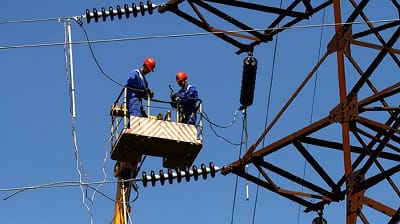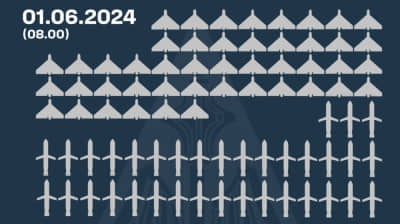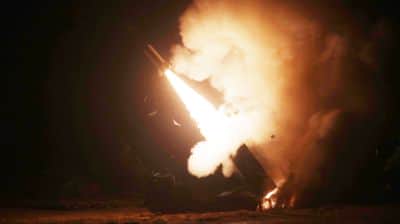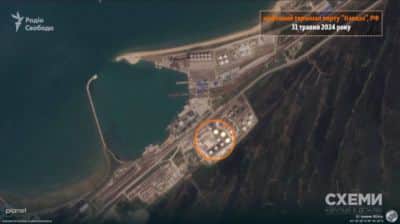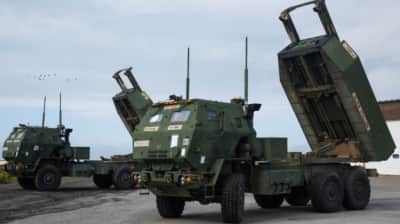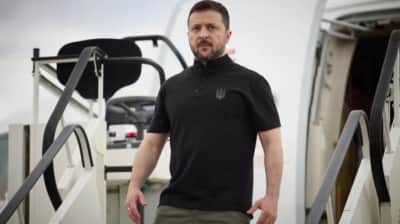Russian reconnaissance drones can reach Ukraine's deep rear – ISW
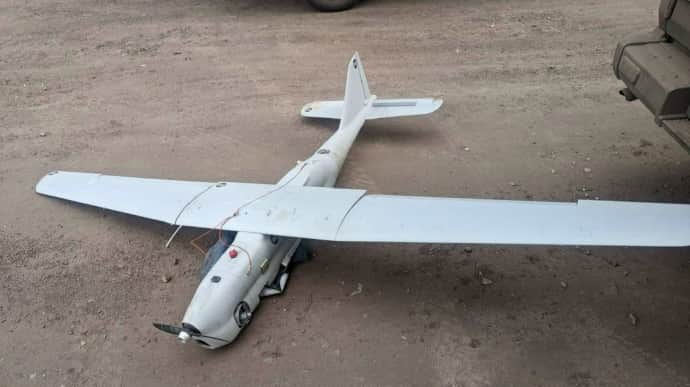
Russian troops can conduct reconnaissance with the help of drones deep in the Ukrainian rear due to the lack of sufficient air defence in Ukraine.
Source: Institute for the Study of War (ISW)
Details: The Royal United Services Institute (RUSI) reported on 14 May that Ukraine has been forced to conserve its surface-to-air missiles because of a reduced supply of anti-aircraft missile systems. This has allowed Russian reconnaissance drones to fly more freely into Ukraine's rear areas, including over Kharkiv, and optimised the firepower of the Russian troops' reconnaissance.
RUSI stated that the reduction in the supply of anti-aircraft systems had forced Ukraine to make difficult decisions regarding the deployment of air defence over critical infrastructure in the rear or in frontline areas.
RUSI noted that well-equipped Ukrainian forces had previously been able to limit Russian intelligence capabilities for most of the full-scale invasion.
Russian forces conducted a large-scale air campaign against the city of Kharkiv as part of their offensive operations in the north of Kharkiv Oblast and used glide-bomb attacks to support Russian ground manoeuvres in Kharkiv Oblast.
Russian forces, among other things, used glide-bomb strikes for tactical purposes during the capture of Avdiivka. Ukrainian troops need Western-made air defence interceptors to destroy Russian reconnaissance drones in the rear and on the front line and to defeat the optimised Russian air defence system that supports the Russians’ tactical advances along the front.
To quote the ISW’s Key Takeaways on 16 May:
- Ukrainian officials reported that Ukrainian forces are stabilising the situation along the northern border in Kharkiv Oblast and that the tempo of Russian offensive operations in the area continues to decrease.
- Ukrainian Internal Affairs Minister Ihor Klymenko reported that Russian forces have executed civilians and taken civilians captive in Vovchansk.
- Russian leader Vladimir Putin likely views Russia's relationship with the People's Republic of China (PRC) as decisive to his effort to further mobilise the Russian economy and defence industry to support a protracted war in Ukraine.
- Putin also used his meeting with Xi to promote known Kremlin narratives feigning interest in peace negotiations and a diplomatic resolution to Russia's invasion of Ukraine.
- Russian forces are reportedly able to conduct fixed-wing drone reconnaissance deep in the Ukrainian rear due to Ukraine's lack of air defence interceptors.
- Ukrainian forces reportedly conducted successful drone strikes against a Russian defence industrial plant in Tula City on the night of 15-16 May.
- Russian missile strikes against Ukrainian energy infrastructure since March 2024 have likely caused long-term damage to Ukrainian energy infrastructure and repeated energy blackouts.
- A Russian insider source, who has previously accurately reported on Russian military command changes, claimed that senior Russian Ministry of Defence (MoD) officials are vying for the position of Chief of the General Staff.
- Kremlin and Georgian officials promoted established Kremlin information operations alleging that the West is orchestrating protests against Georgia's "foreign agent" law in order to overthrow the Georgian government.
- Türkiye and Russia are reportedly exploiting European Union (EU) sanctions regulations to export Russian oil to the EU, allowing Russia to continue to receive significant oil revenues to fund its war effort in Ukraine.
- Russia reportedly launched a satellite as part of its programme to develop a nuclear anti-satellite weapon in the weeks before Russia's full-scale invasion of Ukraine, likely as part of Russian preparations for a future confrontation with NATO.
- Russian forces recently advanced near Lyptsi, Vovchansk, Kupiansk and Donetsk City.
- Several Russian opposition media outlets reported on 16 May that Russian State Duma Defence Committee Chairman Andrei Kartapolov rejected a bill that would grant deferment from mobilisation to certain Russian civilians, likely to support ongoing and future crypto-mobilisation efforts.
Support UP or become our patron!


